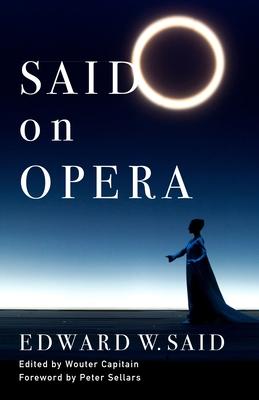One of the late twentieth century's most celebrated and influential public intellectuals, Edward W. Said was also a critic of astonishing range. This book presents his insightful and elegant analyses of four major operas--originally delivered as the Empson Lectures at Cambridge University in 1997--showcasing the power of Said's critical acumen to unsettle canonical interpretations.
In close readings of Mozart's Cos fan tutte, Beethoven's Fidelio, Berlioz's Les Troyens, and Wagner's Die Meistersinger von Nrnberg, Said explores how each opera engages with the social and political questions of their own eras--and how they might speak to the present. He pays careful attention to the works' historical context as well as the possibilities they open for contemporary reinterpretations, examining the tension between opera's cultural prestige and its potential for subversion. Said considers the representation of national identity, class, and exoticism, and he shows how cultural and literary studies can enrich understandings of operatic texts and performance. Lucid and gracefully written, Said on Opera enlivens well-known works with fresh insights and demonstrates the breadth of Said's contributions to cultural criticism. This book features an introduction by the editor, Wouter Capitain, who situates these essays in the context of Said's career, and a foreword by the acclaimed opera director Peter Sellars, who offers a masterful appreciation of Said's achievements.
One of the late twentieth century's most celebrated and influential public intellectuals, Edward W. Said was also a critic of astonishing range. This book presents his insightful and elegant analyses of four major operas--originally delivered as the Empson Lectures at Cambridge University in 1997--showcasing the power of Said's critical acumen to unsettle canonical interpretations.
In close readings of Mozart's Cos fan tutte, Beethoven's Fidelio, Berlioz's Les Troyens, and Wagner's Die Meistersinger von Nrnberg, Said explores how each opera engages with the social and political questions of their own eras--and how they might speak to the present. He pays careful attention to the works' historical context as well as the possibilities they open for contemporary reinterpretations, examining the tension between opera's cultural prestige and its potential for subversion. Said considers the representation of national identity, class, and exoticism, and he shows how cultural and literary studies can enrich understandings of operatic texts and performance. Lucid and gracefully written, Said on Opera enlivens well-known works with fresh insights and demonstrates the breadth of Said's contributions to cultural criticism. This book features an introduction by the editor, Wouter Capitain, who situates these essays in the context of Said's career, and a foreword by the acclaimed opera director Peter Sellars, who offers a masterful appreciation of Said's achievements.Hardcover
$88.89